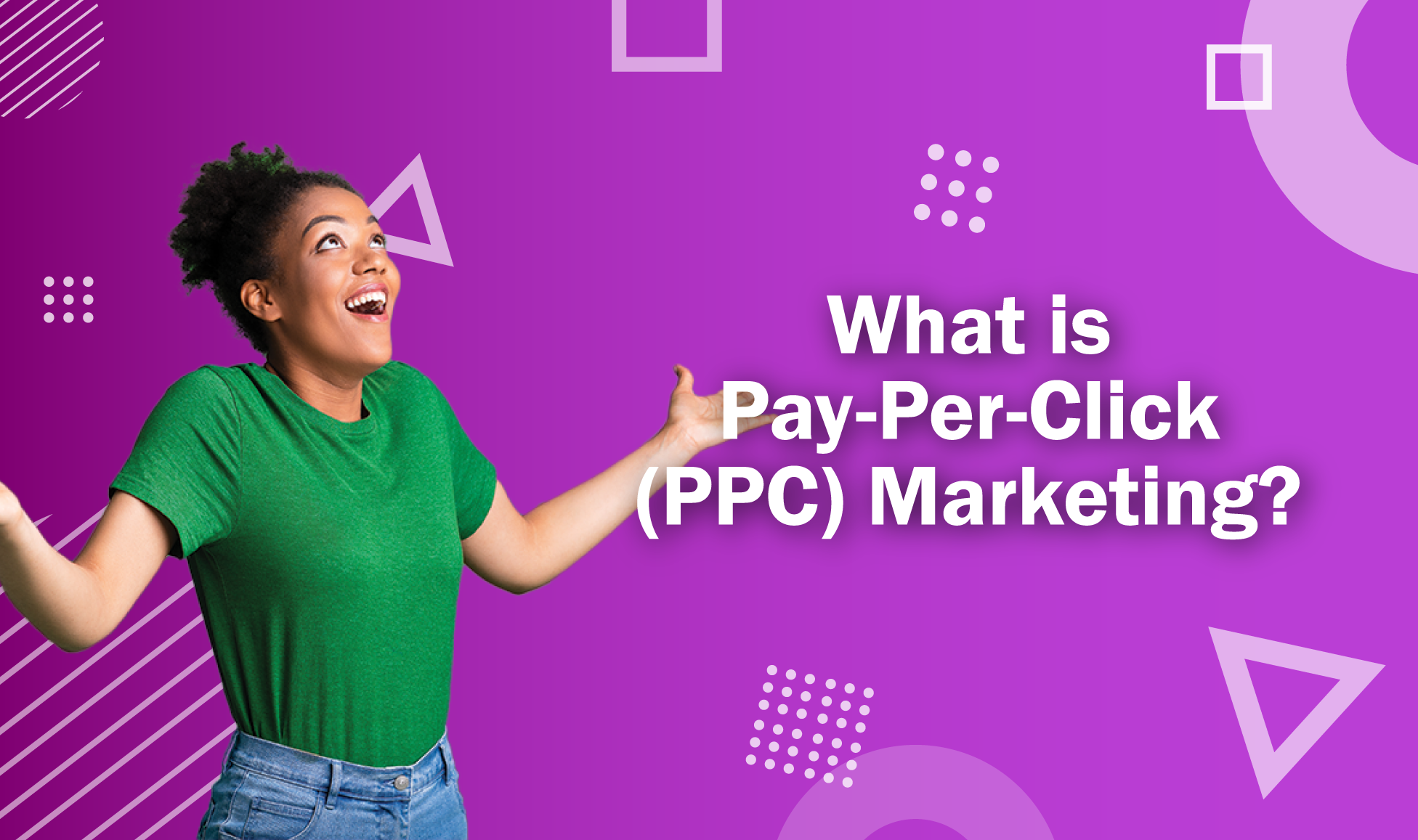Pay-per-click (PPC) marketing is a form of online advertising in which advertisers pay a fee each time one of their ads is clicked. It’s a way of buying visits to your site, rather than attempting to “earn” those visits organically.
One of the most popular forms of PPC is search engine advertising, such as Google Ads (formerly Google AdWords). Advertisers can bid for ad placement in a search engine’s sponsored links when someone searches for a keyword that is related to their business offering.
For instance, if we bid on the keyword “PPC software,” our ad might show up in the very top spot on the Google results page. Now, every time someone clicks on our ad, sending a visitor to our website, we have to pay the search engine a small fee.
A successful PPC campaign depends on a variety of factors, including:
- Keyword Relevance: Crafting relevant PPC keyword lists, tight keyword groups, and proper ad text.
- Landing Page Quality: Creating optimized landing pages with persuasive, relevant content and a clear call-to-action, tailored to specific search queries.
- Quality Score: Google’s rating of the quality and relevance of your keywords, landing pages, and PPC campaigns. Advertisers with better Quality Scores get more ad clicks at lower costs.
- Ad Placement and Positioning: Your ad’s position in search engine results can significantly influence click-through rates and, consequently, the effectiveness of your PPC marketing.
- Creativity: Compelling ad copy and design can differentiate your product or service from competitors and draw more users to click your ad.
While PPC may seem simple on the surface, developing a successful PPC strategy can be quite complex, involving an understanding of keywords, bid strategy, ad design, conversion optimization, and more. Nevertheless, it can be a powerful tool for businesses looking to increase their online visibility and traffic.
What are the Benefits of Pay-Per-Click (PPC) Marketing?
Pay-per-click (PPC) marketing has many benefits for businesses looking to increase their online visibility and reach their target audience more effectively. Some of these benefits include:
- Cost Effectiveness: You only pay when someone clicks on your ad, which means you’re spending money specifically on reaching people who are interested enough in your advertisement to engage with it. This allows you to optimize your budget for the highest return on investment.
- Targeting: PPC campaigns can be highly targeted, allowing you to reach specific demographics, locations, and even the devices that your audience is using. You can also schedule your ads to appear at certain times of day or days of the week to optimize their effectiveness.
- Speed: Unlike organic SEO strategies, which can take months to start showing results, PPC campaigns can start driving traffic to your website almost immediately. This makes PPC an effective strategy for businesses that need to increase their online visibility quickly.
- Measurable Results: With PPC, you can track and measure your campaign results in detail. You can see exactly how many people saw your ad, how many clicked on it, what actions they took on your website, and more. This allows you to adjust your campaign for better results over time.
- Brand Exposure: Even if users don’t click on your ads, having them appear in search results increases your brand’s exposure and helps build brand recognition.
- Control: You have complete control over your PPC campaigns. You can control how much you want to spend, where and when your ads should appear, and what they should look like. You can also stop, pause, or adjust your campaign at any time.
- Testing Capability: PPC is a great way to test whether a product or a service will sell and to get an idea of online demand. The immediate visibility and data provided allow for a quick evaluation of the effectiveness of your offering.
Remember that while PPC has many advantages, it’s most effective when used as part of a broader digital marketing strategy that includes other elements like SEO, content marketing, and social media marketing.

What are the Drawbacks of Pay-Per-Click (PPC) Marketing?
While pay-per-click (PPC) marketing has many benefits, it also comes with some potential drawbacks that businesses should consider:
- Costs Can Add Up: Depending on the competition and industry, PPC advertising can be expensive. Highly competitive keywords can cost several dollars or more per click, and that can add up if you’re not converting enough of those clicks into sales.
- Requires Expert Management: To optimize a PPC campaign, it requires a lot of time, skill, and attention to detail. Without a deep understanding of how PPC works, including keyword research, bidding strategies, ad copy creation, and analytics, you can end up wasting a lot of money on ineffective campaigns.
- Short-lived Results: Unlike SEO, which can provide long-term, organic results, PPC results are typically only present as long as you’re paying for the ads. Once you stop paying, your ads disappear, and so does the traffic they were driving.
- Click Fraud: This is a serious issue where people (or automated bots) repeatedly click on an ad to drive up advertising costs. While platforms like Google have measures in place to minimize the impact of click fraud, it’s still a potential risk.
- Potential for Negative ROI: If not managed well, PPC campaigns can lead to a negative return on investment. This can happen if the cost per click (CPC) is higher than the profit margin for each conversion or if the conversion rate is low.
- Can Be Time-Consuming: Properly managing a PPC campaign – monitoring, adjusting, testing new ads, identifying and adding new keywords, and excluding irrelevant search terms – can be very time-consuming.
- Dependent on Algorithm Changes: Search engines frequently update their algorithms, which can sometimes lead to unexpected changes in your ad performance.
PPC can be a highly effective tool as part of a wider digital marketing strategy, but it’s essential to understand these potential pitfalls to manage campaigns effectively and gain the best return on investment.
Does Pay-Per-Click (PPC) Marketing have a Good ROI?
The return on investment (ROI) for pay-per-click (PPC) marketing can vary significantly depending on a range of factors, including the nature of the business, the competitiveness of the industry, the skill of the PPC manager, and the business’s ability to convert leads into sales.
When implemented effectively, PPC marketing can provide a strong ROI. It allows businesses to target highly specific demographics and keywords, meaning that the traffic you pay for is more likely to be valuable to your business. Additionally, the immediate influx of traffic can generate sales and help increase your customer base quickly.
However, there are also risks. The costs of PPC marketing can be high, particularly in competitive industries where many businesses are bidding for the same keywords. If a PPC campaign is not well managed, costs can quickly outstrip gains, leading to a poor return on investment. Similarly, if your website or landing page isn’t well-designed to convert visitors into customers, you may end up paying for clicks that don’t result in sales.
Monitoring and managing PPC campaigns effectively, understanding customer conversion paths, and optimizing your website for conversions are crucial aspects of ensuring a strong ROI from PPC marketing.
In general, PPC is a tool with the potential for a good ROI, but it requires skill and strategic planning. It’s also most effective when used as part of a comprehensive digital marketing strategy, alongside SEO, content marketing, and other approaches.
